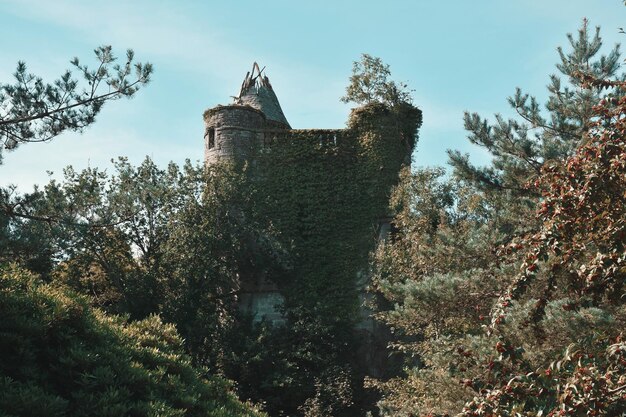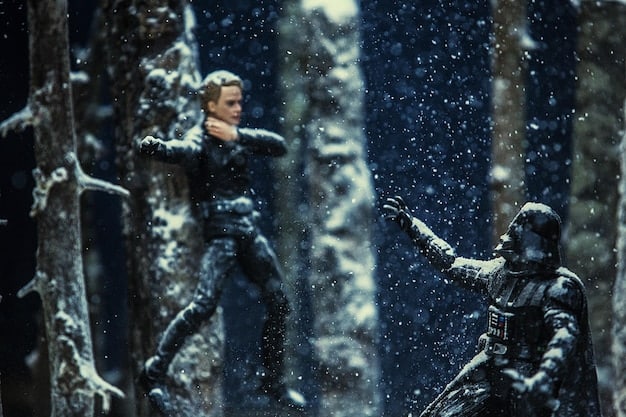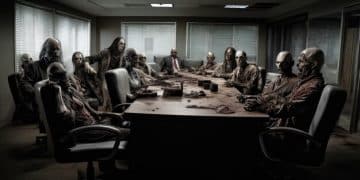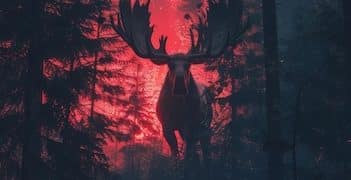Netflix’s The Witcher: Political Intrigue & Power in the Northern Kingdoms

Netflix’s ‘The Witcher’ masterfully portrays the intricate political landscape and fierce power struggles within the Northern Kingdoms, as Geralt navigates a world rife with treachery, alliances, and the ever-present threat of war.
Dive into the complex world of Netflix’s ‘The Witcher’: Exploring the Political Intrigue and Power Struggles in the Northern Kingdoms, where alliances shift like the sands of time and every decision carries the weight of kingdoms. This series offers more than just monster hunting; it unveils a tapestry of political machinations that keep viewers on the edge of their seats.
The Geopolitics of the Continent
The Continent, the sprawling landmass in which ‘The Witcher’ is set, is a hotbed of competing interests and ancient grudges. Understanding the geographical layout and the power each kingdom holds is crucial to grasp the series’ political undercurrents.
From the mighty Nilfgaardian Empire in the south to the fragmented Northern Kingdoms, the political map is constantly in flux. Each region brings its own unique set of challenges and alliances to the fore.
Key Political Players
Several kingdoms and factions play prominent roles in the power struggles depicted in ‘The Witcher.’ These include:
- Nilfgaard: The expansive empire to the south, known for its military might and ambition.
- The Northern Kingdoms: A collection of independent realms, including Temeria, Redania, and Cintra, often at odds with one another.
- Mages and Sorceresses: Powerful individuals wielding magic, who often influence political decisions behind the scenes.
These groups are constantly vying for control, creating a dynamic and unpredictable political landscape.
In essence, understanding the geopolitics of ‘The Witcher’ is understanding the game of thrones playing out across the Continent, shaping destinies and fueling conflicts.
The Role of Monarchy and Succession
The concept of monarchy is central to the political system in ‘The Witcher.’ The right to rule, the process of succession, and the obligations of a monarch are continually tested throughout the series.
The series explores the intricacies of royal relationships, emphasizing their effect in political stability and the potential for chaos when succession lines are insecure.
Succession Crises and Power Vacuums
Succession crises frequently lead to power vacuums, creating opportunities for ambitious factions to seize control. Key examples include:
- Cintra’s Fall: The death of Queen Calanthe leads to political instability and ultimately Nilfgaard’s invasion.
- Temeria’s Instability: King Foltest’s lack of a clear heir creates internal strife and vulnerability to external threats.
- Redania’s Ambitions: King Vizimir’s strategic maneuvering aims to benefit from the instability in neighboring kingdoms.
These scenarios showcase how succession issues can destabilize entire regions.

The series underscores the notion that a stable monarchy is essential for prosperity and security. When that stability is threatened, the entire kingdom is at risk.
Alliances and Betrayals
In the world of ‘The Witcher,’ alliances are rarely set in stone. Political marriages, treaties, and pacts are all tools used to gain advantage, but they can be broken just as easily.
The constant shifting of alliances creates an environment of mistrust and uncertainty. Characters must always be wary of who they can truly rely on.
Key Alliances and Their Fates
Several notable alliances shape the course of the series:
- The Northern Kingdoms’ Coalition: An attempt to unite against Nilfgaard, often hampered by internal divisions.
- Mages and Kingdoms: Mages often counsel and support monarchs, but their allegiance can shift based on their own interests.
- Individuals within Kingdoms: Internal alliances forming within kingdoms, influencing policy and power dynamics.
These alliances are constantly tested, revealing the fragile nature of trust in a world of political intrigue.
In the end, understanding the dynamic of alliances and betrayals is crucial to deciphering the political web of ‘The Witcher.’
Magic as a Political Tool
Magic is not merely a mystical force in ‘The Witcher’; it is a potent political weapon. Mages and sorceresses wield power not only through their spells but also through their influence in royal courts.
Mages often serve as advisors to monarchs, shaping policies and engaging in espionage. Their decisions can have far-reaching consequences.

The Brotherhood of Sorcerers and Power Dynamics
The Brotherhood serves both as a regulatory body for mages and a significant political force:
- Influence on Royal Courts: Mages provide counsel, protection, and strategic advantage to kingdoms.
- Internal Politics: The Brotherhood itself is subject to internal power struggles and differing ideologies.
- Consequences of Magic Use: The ethical implications and societal impact of using magic are frequent subjects of discussion.
The presence of magic in the political arena adds a layer of complexity to the power dynamics in ‘The Witcher.’
Ultimately, magic serves as a constant reminder of the potential for both creation and destruction, influencing the course of political events.
The Impact of War on Political Structures
War is a recurring theme in ‘The Witcher,’ and it has a profound impact on the political structures of the Northern Kingdoms. Conflicts reshape borders, topple monarchs, and create new alliances.
The series portrays the human cost of war, along with the political maneuvering that drives it. Each battle has lasting effects on the balance of power.
Key Battles and Their Political Fallout
Several significant battles and wars alter the political landscape:
- The Battle of Sodden Hill: A pivotal battle against Nilfgaard that showcases the unity and resilience of the Northern Kingdoms.
- The Invasion of Cintra: The fall of Cintra marks a significant shift in the balance of power, opening the door for further Nilfgaardian expansion.
- Internal Conflicts: Rebellions and civil wars within kingdoms further destabilize the region.
These conflicts underscore the fragility of political systems in the face of war.
In essence, war serves as a catalyst for change, reshaping the political map and forcing leaders to adapt or perish.
Character Motivations and Political Decision-Making
The characters in ‘The Witcher’ are driven by a variety of motivations, including ambition, duty, and personal beliefs. Understanding these motivations is essential to understanding their political decisions.
Monarchs, mages, and commoners alike make choices that have political ramifications. Their individual stories weave together to form a larger narrative of power and intrigue.
Examples of Character-Driven Politics
Several characters exemplify the intersection of personal motivations and political consequences:
- Geralt of Rivia: Though ostensibly neutral, his choices often have political repercussions, especially when the lives of those he cares about are at stake.
- Yennefer of Vengerberg: Her quest for power and influence shapes her political alliances and actions, often driven by her ambition to leave her mark on the world.
- Ciri: Her royal lineage and unique abilities make her a pawn in the game of thrones, with various factions vying for her control.
These characters demonstrate how personal agendas can shape the political landscape.
Ultimately, the interplay between personal motivations and political decision-making adds depth and complexity to the world of ‘The Witcher.’
| Key Point | Brief Description |
|---|---|
| 👑 Monarchy | Succession and power struggles define many kingdoms. |
| ⚔️ Alliances | Fragile and shifting, alliances play a crucial role. |
| ✨ Magic | Magic is a tool used by mages to influence politics. |
| 🛡️ War | War reshapes borders and political structures. |
FAQ
▼
The main factions include the Nilfgaardian Empire, the various Northern Kingdoms like Redania and Temeria, and influential groups of mages, each vying for power and control over the Continent.
▼
Monarchy plays a central role, with succession crises often leading to instability and power vacuums. Alliances, betrayals, and the strength of royal lines greatly affect each kingdom’s political standing.
▼
Magic is a significant political tool. Mages serve as advisors and influencers in royal courts, using their abilities to shape policies, engage in espionage, and provide strategic advantages to their respective kingdoms.
▼
Wars dramatically reshape borders, topple monarchs, and forge new alliances. Conflicts like the Battle of Sodden Hill and the invasion of Cintra have lasting impacts, altering the balance of power.
▼
Characters are driven by various motivations: ambition, duty, and personal beliefs all play a role. Understanding these motivations helps explain their political decisions and actions within the series.
Conclusion
In conclusion, Netflix’s ‘The Witcher’: Exploring the Political Intrigue and Power Struggles in the Northern Kingdoms presents a complex and compelling world where political maneuvering, alliances, war, and magic shape the destinies of kingdoms and individuals. The series offers a rich tapestry of political dynamics that keep viewers engaged and invested in the fate of the Continent.





